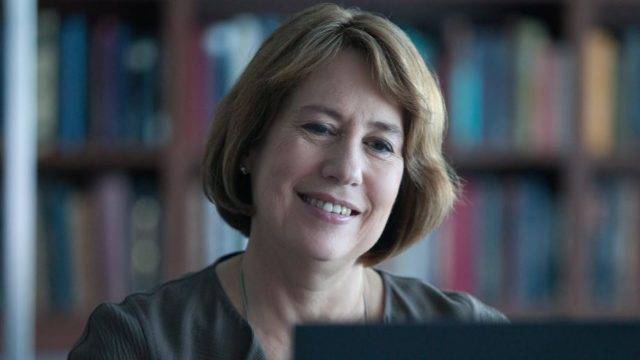Shelia Bair is known as the 28th president of Washington College in Chestertown, MD, from August of 2015. Previously, she served as the 19th Chairperson of the U.S. Federal Insurance Corporation (FDIC) She was appointed to the post for a five-year term on June 26, 2006 by George W. Bush. Well in regards to the latest of news with Blair is that she was drawed near the podium in the downtown Renaissance Washington hotel ballroom to talk to the American Bankers Association for the final time as one of their most authoritative managers.
Bair had continued going up against bankers and lobbyists during her five-year term, chairing the Federal Deposit Insurance Corp., who opposed her efforts at imposing regulation. Even in March 2011, when the economy was still reeling from a crisis caused by bad loans, none of them cared to pay attention. It’s always a challenge to get people to listen to what you have to say when they don’t care.
Bair claimed that Banks had put people in jeopardy, and now they faced a choice. To be looked upon by history either as an assembly that abided the reinstatement of free enterprise and public accountability in the American market, or as a assembly that primarily looked out for its own interests and opposed reforms that could have re-established an intellect of confidence and fairness in our financial markets.
About a month ago, Bair arrived at her present office at Washington College in Chestertown, Md. It was the first day of classes and the start of her second academic year. But similar in 2006 at the FDIC when she suspected the coming mortgage crisis, Bair sees a probable financial disaster threatening in her new industry—a making of excessively indebted Americans who will be forced down by liability to donate to the nation.
So significantly, Bair has turned her campus into a platform for her experiments. Her revolutionary hard work to diminish student debt and make higher education more affordable could inspire other schools to do the same. This evidently also says a lot about her concerns about the economy and the people living in it. She wants to do better, which accounts for putting less people in financial debt. If Bair is victorious, and other schools are influenced by her accounts, possibly this time the crisis she envisions doesn’t have to come true.
The aspiration of leading a college stuck with her Bair. Washington College was looking for a new president. The school’s size—it has less than 1,500 students—which Bair liked. Since Bair could have an instant contact and communicate directly with students. Bair had the job instantly.
In early 2014, Bair had planned to write a book called, Bullies of Wall Street. It explained the 2008 financial crisis to young Americans. She wrote it to advise people against repeating mistakes that people make everyday. She thought it would be vital if she began to pay notice to student loans, since this is an ongoing issue with education. Bair hadn’t realized the extent to which Americans had loaded up on student debt in search of credentials in the aftermath of the financial crisis and were now struggling to pay it back.
Student Loan Hero indicates that in 2016, Americans are more weighed down by student loan debt than ever. Americans owe approximately $1.3 trillion in student loan debt, spread out among about 43 million borrowers. In truth, the average Class of 2016 graduate has $37,172 in student loan debt, up six percent from last year. Clearly, that is not good.
In addition, the federal government owns or backs more than 90 percent of it. More than 42 percent of federally owned student loans aren’t being repaid as expected or on time. Bair has been knowledgeable about a lot of student loans and higher education that prompted her of the dishonest pre-crisis era mortgage marketplace. Borrowers in both the housing and school markets protested of careless customer service and an incapability to strike deals with their loan servicers when they no longer could afford their monthly payments. People want answers not be ignored. Prior to the financial crisis, lenders regularly gave mortgages to borrowers who couldn’t afford them. Clearly, that wasn’t smart. Similarly, the same situation was occurring with student loans.
Just like the mortgage brokers who made money-giving loans to people who couldn’t afford them, the U.S. Department of Education, consequently doesn’t check whether people will be able to repay their debt. Talk about a foolish act. Then we wonder why people suffer with debt after. These false acts need to be accounted for and put to a stop. People are supposed to be helping consumers of society not making them poor. In what right state of mind is this good idea? Numbers don’t lie when it comes to the amount of debt people keep piling on.










